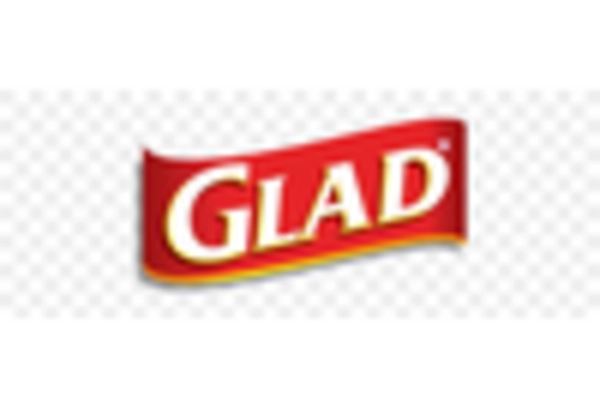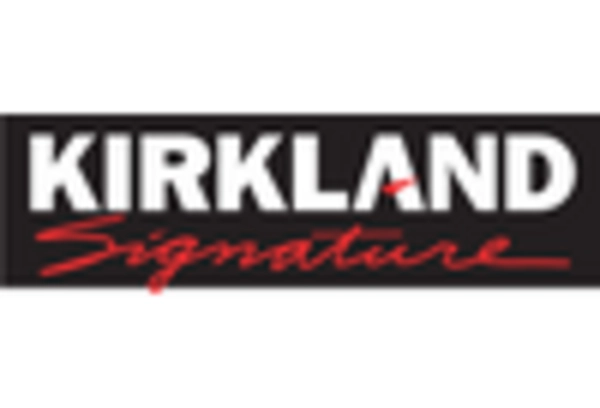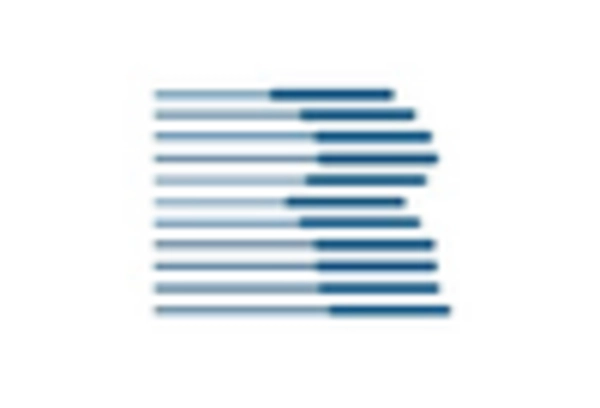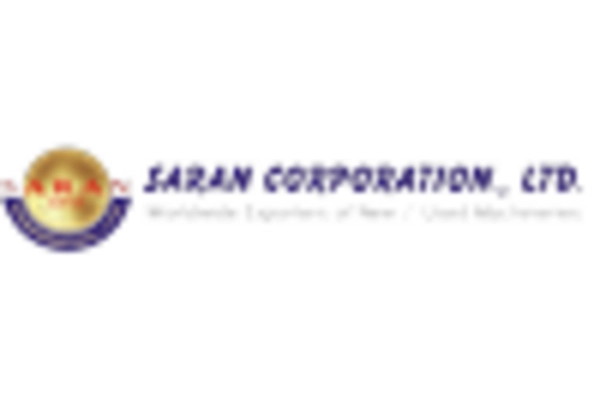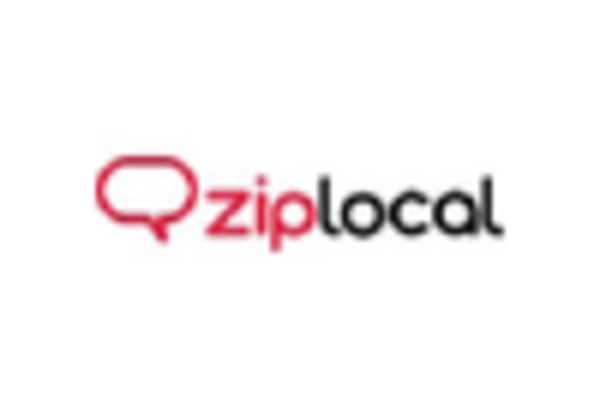Increased Home Cooking
The trend of increased home cooking is contributing to the growth of the freezer bags market. As more individuals opt to prepare meals at home, the need for effective storage solutions becomes paramount. Freezer bags offer a convenient way to store prepped ingredients and leftovers, aligning with the growing trend of meal prepping. Recent statistics suggest that home cooking has risen by approximately 20% in the past year, leading to a corresponding increase in the demand for freezer bags. This trend is likely to continue as consumers seek to balance convenience with healthy eating.
Health and Wellness Trends
The growing emphasis on health and wellness among consumers is influencing the freezer bags market. As individuals become more health-conscious, there is an increasing preference for fresh, homemade meals over processed foods. Freezer bags facilitate the storage of meal preps, allowing consumers to maintain a healthy diet while managing their time effectively. The market data indicates that the demand for freezer bags has surged by approximately 15% in the last year, as more people engage in meal planning and preparation. This trend is expected to persist as health awareness continues to shape consumer behavior.
Innovations in Packaging Technology
Advancements in packaging technology are significantly impacting the freezer bags market. Manufacturers are increasingly developing freezer bags with enhanced features such as improved sealing mechanisms and BPA-free materials. These innovations not only enhance the functionality of freezer bags but also address consumer concerns regarding safety and environmental impact. The market has seen a rise in the introduction of reusable freezer bags, which appeal to eco-conscious consumers. As technology continues to evolve, it is anticipated that the freezer bags market will witness further innovations that cater to changing consumer preferences.
Rising Demand for Food Preservation
The increasing consumer awareness regarding food waste is driving the demand for effective food preservation solutions. The freezer bags market is experiencing growth as households seek to extend the shelf life of perishable items. According to recent data, approximately 30% of food produced in the US is wasted, prompting consumers to adopt practices that minimize waste. Freezer bags provide a practical solution for storing leftovers and bulk purchases, allowing for better organization and preservation of food. This trend is likely to continue as more consumers prioritize sustainability and cost-effectiveness in their purchasing decisions.
Rising Popularity of Online Grocery Shopping
The shift towards online grocery shopping is reshaping the freezer bags market. As consumers increasingly turn to e-commerce platforms for their grocery needs, the demand for freezer bags is expected to rise. Online retailers are expanding their offerings to include a variety of freezer bag options, catering to the diverse preferences of consumers. Market data indicates that online grocery sales have grown by over 25% in the last year, highlighting a significant shift in shopping behavior. This trend suggests that the freezer bags market will benefit from the convenience and accessibility provided by online shopping.



